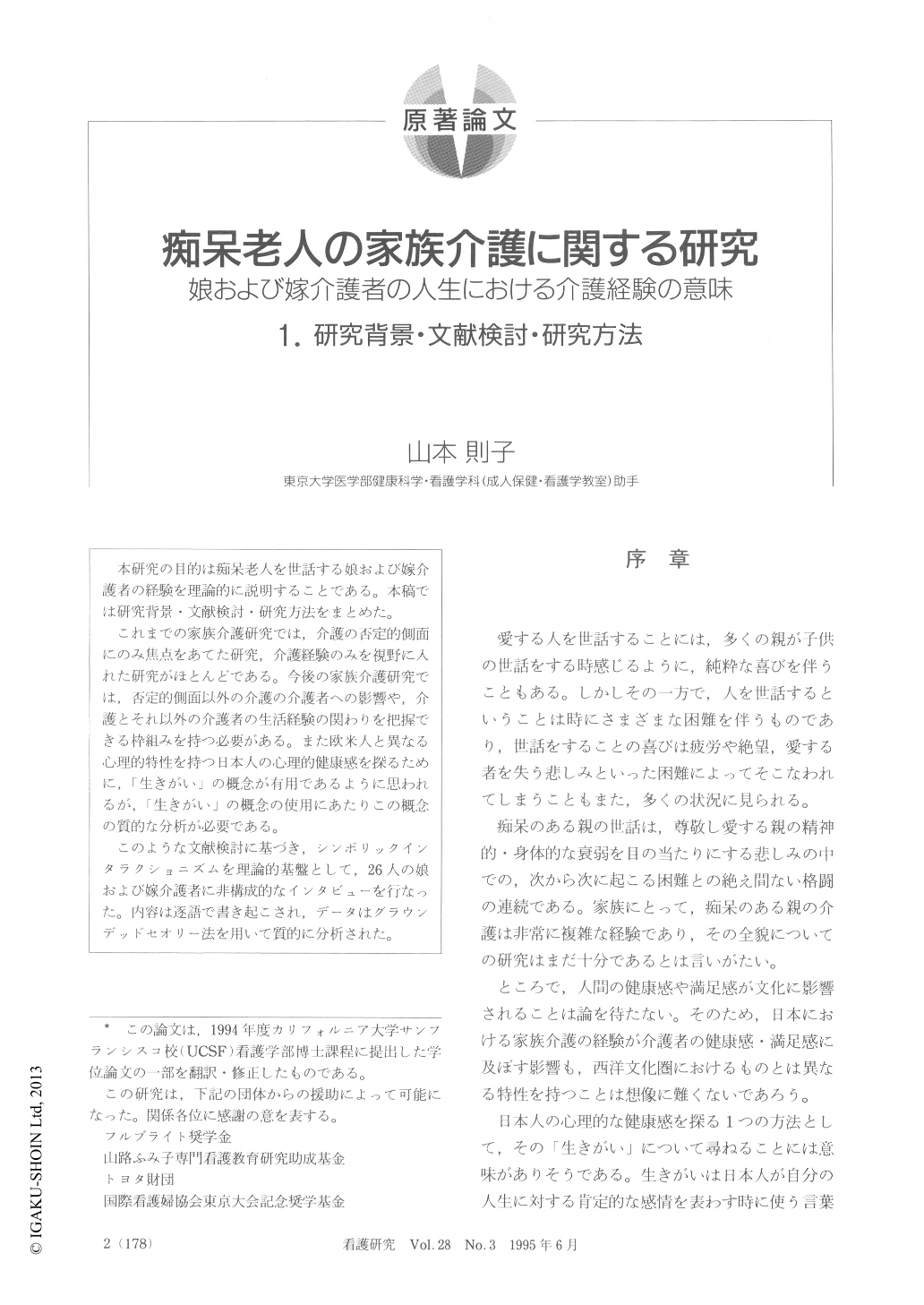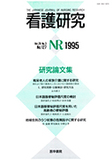Japanese
English
- 有料閲覧
- Abstract 文献概要
- 1ページ目 Look Inside
- サイト内被引用 Cited by
本研究の目的は痴呆老人を世話する娘および嫁介護者の経験を理論的に説明することである。本稿では研究背景・文献検討・研究方法をまとめた。
これまでの家族介護研究では,介護の否定的側面にのみ焦点をあてた研究,介護経験のみを視野にれた研究がほとんどである。今後の家族介護研究では,否定的側面以外の介護の介護者への影響や,介護とそれ以外の介護者の生活経験の関わりを把握できる枠組みを持つ必要がある。また欧米人と異なる心理的特性を持つ日本人の心理的健康感を探るために,「生きがい」の概念が有用であるように思われるが,「生きがい」の概念の使用にあたりこの概念の質的な分析が必要である。
このような文献検討に基づき,シンボリックインタラクショニズムを理論的基盤として,26人の娘および嫁介護者に非構成的なインタビューを行なった。内容は逐語で書き起こされ,データはグラウンデッドセオリー法を用いて質的に分析された。
The purpose of this research is to theoretically explain the experience of Japanese women caring for their elderly parent (or parent-in-law) with dementia. This first paper discussed the introductory partof the research project : background, literature review, and research method.
Because of the increasing number of elderly people who need someassistance in their daily lives, the issue of family caregiving of the elderly is particularly important in Japan. Past literature was selectively reviewed on family caregiving, conceptualization of self, and characteristic features of psychological well-being of Japanese people. Research on family caregiving to date tends to focus only on the negative aspects of care and the caregiving experience by itself, so future research needs a broader perspective which captures the non-negative aspects of care and the relationship between caregiving and other experiences of the caregiver in her life course. In order to explore psychological well-being of the Japanese, the word ikigai seems to be useful, although this concept has not been conceptually defined in the past and theoretical analysis is necessary. Based on the literature review, symbolic interactionist perspective is used as a theoretical basis for this research along with the conceptualization of self by Mead and Johnson, and the perspective of career trajectory. Twenty-six Japanese caregivers, who were all daughters and daughters-in-law of persons afflicted with dementia, were interviewed in this research. Unstructured interviews were held, and the contents of the interview were transcribed. Grounded theory is used to analyze the transcribed interview data.

Copyright © 1995, Igaku-Shoin Ltd. All rights reserved.


